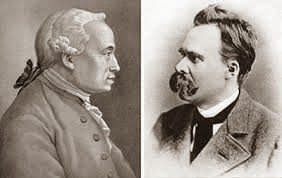This may be of interest to Romanticists / nineteenth-century specialists
alike - as well as those working within the context of theatre studies in
general; abstracts and short biographies to be sent, by 25th May
2014, to: rebedconference@gmail.com
----------------------------------------------------------------------------------------------------
The ‘Exotic’
Body in 19th-century British Drama
University of Oxford
Funded under the 2011 Marie Curie
Intra-European Fellowships scheme, European Commission
25-26 September 2014
Faculty of English Language and
Literature, University of Oxford
Convenor: Dr Tiziana Morosetti (Oxford)
Confirmed speakers:
Professor Ross Forman (Warwick), Dr
Peter Yeandle (Manchester),
Dr Hazel Waters (Institute of Race
Relations, London)
Increasing
attention has been paid in recent years to the representation of the Other on
the 19th-century British stage, with key
studies such as Acts of Supremacy: The British Empire and the Stage,
1790-1930 (Bratton et al. 1991), The Orient on the Victorian Stage
(Ziter 2003), Bodies in Dissent: Spectacular Performances of Race and
Freedom, 1850-1910 (Brooks 2006), Racism on the Victorian Stage:
Representation of Slavery and the Black Character (Waters 2007), Nineteenth-Century
Theatre and the Imperial Encounter (Gould 2011), China and the Victorian
Imagination: Empires Entwined (Forman 2013). Building on these, the
conference aims at exploring the concept, politics, and aesthetic features of
the ‘exotic’ body on stage, be it the actual body of the actor/actress as s/he
performs in genres such as the ‘Oriental’ extravaganza, or the fictional,
‘picturesque’ bodies they bring on stage. A term that in itself needs
interrogation, the ‘exotic’ will therefore be discussed addressing the visual
features that characterize the construction and representation of the Other in
19th-century British drama, as well as the material
conditions, and techniques that accompany the ‘exotic’ on stage on the cultural
and political background of imperial Britain.
One
of the dissemination activities for the two-year project ‘The Representation of
the “Exotic” Body in 19th-century English Drama’ (REBED), funded under the 2011
Marie Curie Intra-European Fellowships scheme, the conference also hopes to
function as a site for discussing the state of the art on the ‘exotic’ in the
theatrical cultures of both Romantic and Victorian Britain; contributions on
ongoing research and/or recently completed projects are therefore particularly
encouraged.
Although
attention will be paid mostly to the non-European Other, papers addressing a
European ‘exotic’ are also welcome.
Topics
include the following:
Definitions
of ‘exotic’:
-Is
the non-European Other on stage really ‘exotic’?
-Are
any genres more ‘exotic’ (or more liable to convey ‘exotic’ stereotypes) than
others?
-Do
different dramatis personæ and/or settings convey different degrees of
‘otherness’?
-Can
the British on stage be ‘exotic’, and, if so, to what extent?
-Is
the spectacular on stage itself ‘exotic’?
Staging
the ‘exotic’ body:
-How
are costumes, make-up, scenery, movements employed to construct the ‘exotic’?
-Are
any visual features more recurrent than others?
-To what extent is the visual
representation of the ‘exotic’ body historically accurate?
-How does music contribute to the
staging of the Other?
-Who embodies the ‘exotic’? Is the
acting career informed by bringing the Other on stage?
-Who were the audiences? Did their
composition have an impact on the performance of the ‘exotic’?
-Are any experiences abroad relevant to
how managers staged the Other in Britain?
-In what ways were representations of
the ‘exotic’ body informed by venues?
-The Other on the London stage and the
provinces
Cultural and political backgrounds:
-To what extent did audiences’
expectations affect theatrical representations of the Other?
-In
what ways do class, gender, race inform the acting and managing of ‘exotic’
pieces?
-To what extent did scientific and
anthropological accounts inform theatrical portraits of the Other?
-Were
illustrations of (European and/or) non-European countries informed by theatre?
-In
what ways have political narratives influenced (or been influenced by) the
‘exotic’ on stage?
-Has the legal frame for the theatre
influenced the staging of the Other?
-Visual points of contact between
popular entertainment and theatrical representations of the Other
The
travelling ‘exotic’:
-How do texts such as Arabian Nights,
Uncle Tom’s Cabin, or Mazeppa ‘travel’ between dramatic and
non-dramatic genres?
-Survival
of a Romantic ‘exotic’ in the Victorian staging of the Other;
-Is
Othello on the Romantic and Victorian stage ‘exotic’?
-How do translations/adaptations from
other languages contribute to the construction of the Other on the British
stage? Can we define a British specificity when it comes to the ‘exotic’?
-Has
the theatrical representation of the ‘exotic’ in Britain had an impact on
non-British stages?
The
legacy of 19th-century ‘exotic’ body:
-Contemporary plays/performances addressing the Other on the 19th-century British stage (e.g. Lolita
Chakrabarti’s Red Velvet)
-The ‘exotic’ body on the British stage
in a diachronic perspective
-The non-European Other in the 20th- and 21st-century Christmas pantomime
Speakers
whose abstracts have been accepted will be notified by 15 June.

















